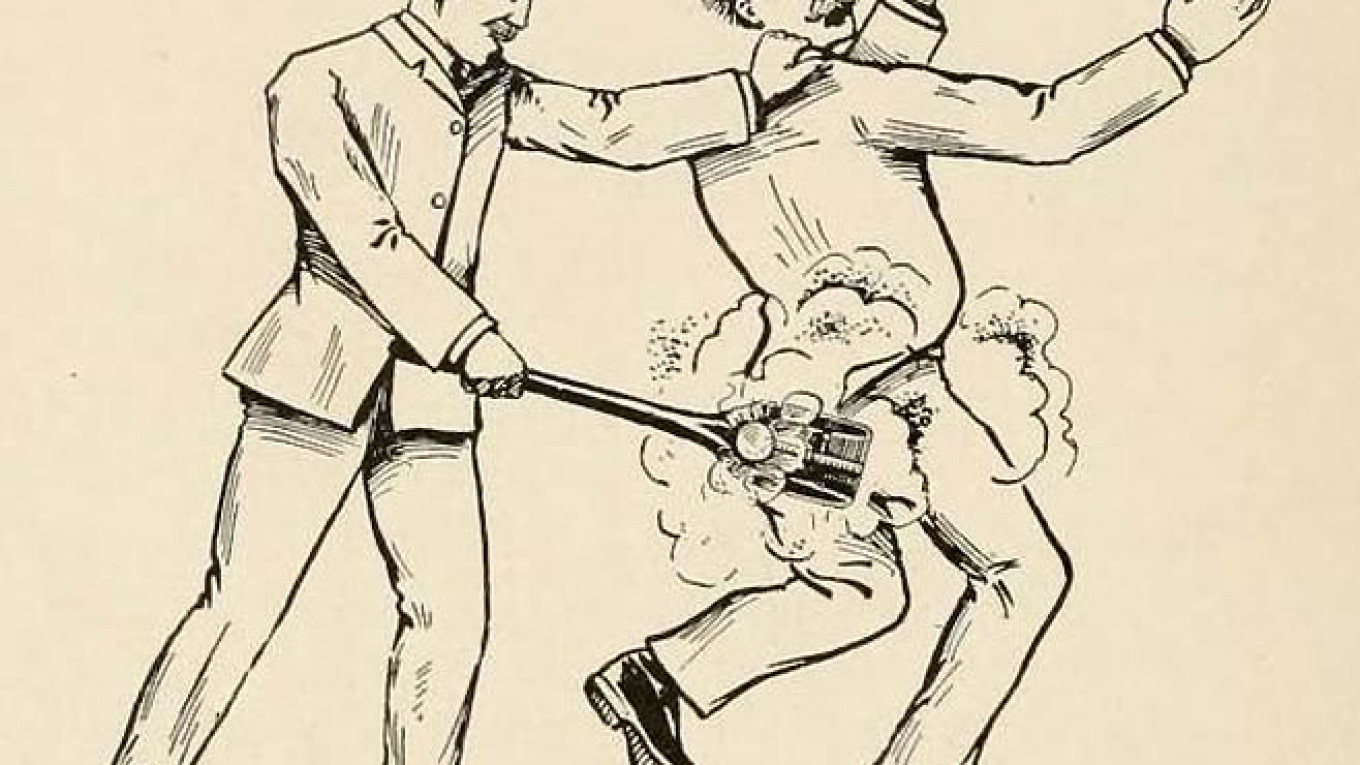Геморрой: hemorrhoid, pain in the butt
It is Friday and you have to get seven signatures on 14 documents from three ministries situated at opposite ends of the city — all by the end of the day. It is Saturday night and you are standing on a shaky ladder, pawing through the junk in the антресоль (under-the-ceiling storage space), looking for a pair of boots that you shoved up there six months ago. It is Sunday and you are sitting on the floor with three electronics manuals open, trying to set up your new home theater.
In Russian, all these unpleasant, time-consuming, uncomfortable and annoying tasks can be summed up in one word: геморрой. This is literally a hemorrhoid and figuratively anything that is a pain in the butt.
Being something of a specialist in misery-inducing tasks, I have concluded that геморрой and pain in the butt are not exact equivalents. The English pain in the rear is often a person, and геморрой is almost always a thing or activity. In English, the pain is something or someone difficult and annoying, while the Russian pain generally has the added connotation of being tedious. But still, when you want to verbally explode about some incredibly annoying task, геморрой is a great word to reach for. У нас проще уволить его и избежать геморроя (It is easier for us to fire him — otherwise it is an incredible pain in the butt).
If you are more polite than I am, you might prefer other terms to describe miserable people and problems. For example, загвоздка, which has the now rather obscure literal meaning of a plug and the more common figurative meaning of a hitch or catch. Вот в чём загвоздка! There's the catch! У неё отличный голос и внешность, загвоздка только в том, как пробиться на большую сцену, если живёшь в Урюпинске?(She has got a great voice and she is pretty, but there's one hitch — how can she get on stage in the big city if she lives in Nowheresville?) It can also be an annoying problem: Тут в этом деле серьёзная загвоздка, чисто юридическая (There is a huge stumbling block in this matter — a purely legal problem).
If you don't like that word, you can try заморочка, which comes, dimly, from the word for darkness. Заморочка can be an annoying task or problem: В этом аэропорту ты запутаешься, там всюду заморочки (You will get lost in that airport — the place is a real mess). Заморочки can also be a person's obsessions or mindset. Войти в образ, забыть про себя, про все свои заморочки и бытовые проблемы и прожить новую жизнь хоть на сцене ― есть в этом огромный кайф. (It is an incredible thrill to forget about yourself, your weird ideas and everyday problems as you get into a role and live a new life on stage).
You might also choose a related word, морока, which can refer to an annoying and time-consuming task: Справки надо разные собирать, а это, конечно, морока (I have to collect a bunch of documents, and of course that is a real pain).
Морока should not be confused with морок (something dark or crazy-making) or Марокко (Morocco), even though people will try to throw you off: Какая морока с этим Марокко! Настоящий морок! (What a mess with Morocco! It's a step into the abyss!)
When they try that on you, just say: Не морочь мне голову! (Don't mess with my head!)
Michele A. Berdy, a Moscow-based translator and interpreter, is author of "The Russian Word's Worth" (Glas), a collection of her columns.
A Message from The Moscow Times:
Dear readers,
We are facing unprecedented challenges. Russia's Prosecutor General's Office has designated The Moscow Times as an "undesirable" organization, criminalizing our work and putting our staff at risk of prosecution. This follows our earlier unjust labeling as a "foreign agent."
These actions are direct attempts to silence independent journalism in Russia. The authorities claim our work "discredits the decisions of the Russian leadership." We see things differently: we strive to provide accurate, unbiased reporting on Russia.
We, the journalists of The Moscow Times, refuse to be silenced. But to continue our work, we need your help.
Your support, no matter how small, makes a world of difference. If you can, please support us monthly starting from just $2. It's quick to set up, and every contribution makes a significant impact.
By supporting The Moscow Times, you're defending open, independent journalism in the face of repression. Thank you for standing with us.
Remind me later.








